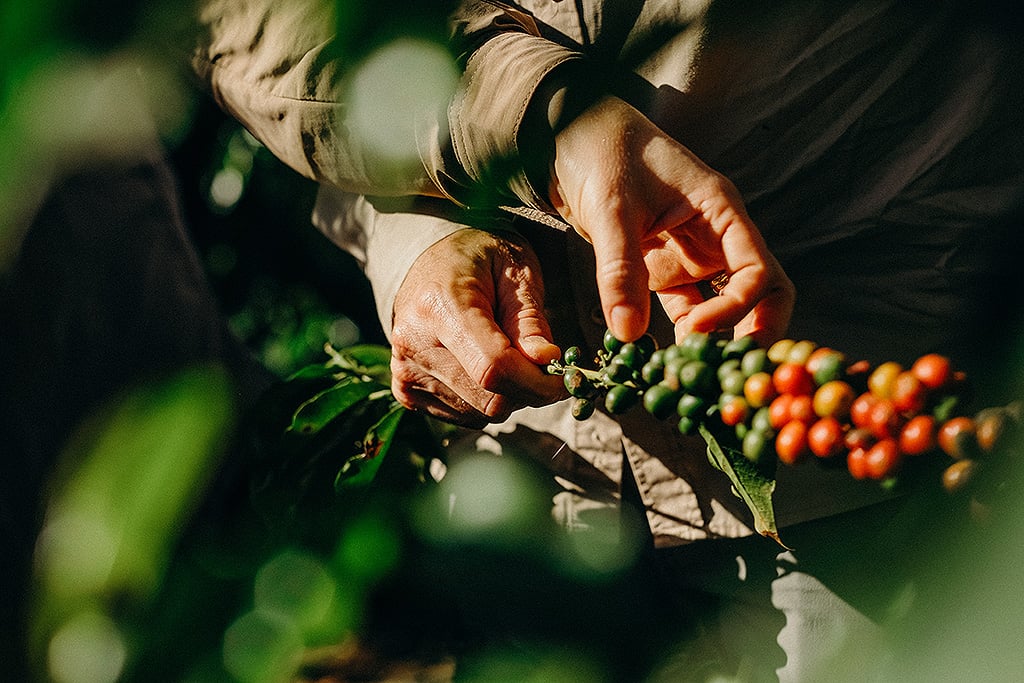

Coffee grown by farmers participating in the Nespresso Regenerative Agriculture Program. Photo: Bizarre Jungle
The circular economy is an important key to addressing major global problems such as pollution and climate change, and the transition of the food sector to this model is one of the solutions most likely to contribute to this. Today, the food system is the second largest emitter of greenhouse gases, after electricity generation, and agriculture is responsible for 80% of global deforestation.
Creating a circular economy for food could reduce greenhouse gas emissions by 49% by 2050 (or 5.6 billion tons of carbon dioxide equivalent per year) compared to the current scenario. Given this scenario, food companies and supermarkets have the power to change the current system by reformulating their products and portfolios.
According to the report “Great food redesign”by the Ellen MacArthur Foundation, the 10 largest food companies and supermarkets can transform 40% of arable land in the UK and Europe by reformulating their products based on ‘circular design’, which is the application of circular economics principles to the development of a food product, including This includes the types of ingredients used, the origin, the method of production and packaging.
In addition, the report also states that developing food products in a way that supports nature can reduce greenhouse gas emissions by 70%, and impacts on biodiversity by 50%, compared to the current scenario.
Round food design
Based on this study and seeking to promote and stimulate the action of actors in this sector in Latin America, the Ellen MacArthur Foundation has developed the 5-episode documentary series “Circular Food Design – Rethinking products to rejuvenate natureIt presents the cases of companies from Brazil and Colombia that have decided to rethink their products and supply chains to be positive for nature.
The episodes, which also highlight specific characteristics of the biomes in Brazil and Colombia, present the cases of big companies like Nespresso, Mãe Terra, Wickbold and Carrefour, as well as their innovators.
The examples provided bring to life one or more aspects of the “circular food design” paradigm proposed by the Ellen MacArthur Foundation. That is, the offered products use or develop different ingredients (in terms of varieties and types of plants and animals), which have less impact on the environment, which are recycled (from common food products), and produced in a renewable way for the sake of nature.
The chain also emphasizes the role of retailers in making it easier for products with these characteristics to enter their shelves, so that they can gain consumer favor. “Entrepreneurs have a social role and companies will demand this radical change in the coming years,” says Pedro Weckbold, director of Weckbold, one of the interviewees.
For the circular food design paradigm to reach its full potential and generate the expected positive benefits of a food system, all of its aspects must come together. That is, the products contain ingredients that are produced renewable, recycled, with less impact and variety.
The examples presented in this series show that the great companies and innovators in the region are moving in a positive direction. Meanwhile, more companies need to seize the opportunity of circular design and act in favor of transforming the food system to help nature thrive.
The five videos that make up the series are available at www YouTube channel no Ellen MacArthur Foundation websitewith transcriptions in Portuguese, English and Spanish.
Rejuvenating coffee
One of the initiatives introduced is Nespresso’s work to transfer coffee production from Cerrado Mineiro to a renewable and diversified production. According to Guilherme Amado, a leader in sustainable quality in Brazil and Hawaii, “Nespresso decided to work with regenerative agriculture, because this was a topic that led to a clear response to one of the major challenges we face globally, which is climate change.”
In partnership with ReNature, the company has identified the country’s leading producers of renewable agriculture and selected 10 farms to work on a pilot project. One of them was Guima Café, whose on-farm renewable farming projects included tree planting with avocado trees, which also feature diversification. In addition to helping with renewable coffee production, the trees could generate a new revenue stream for the company.
“Coffee can make positive impacts. The idea is, specifically, through strategy, to make consumers aware that when they drink a cup of coffee, they are generating a positive impact on the planet.” one of the episodes.

“Friendly zombie guru. Avid pop culture scholar. Freelance travel geek. Wannabe troublemaker. Coffee specialist.”






